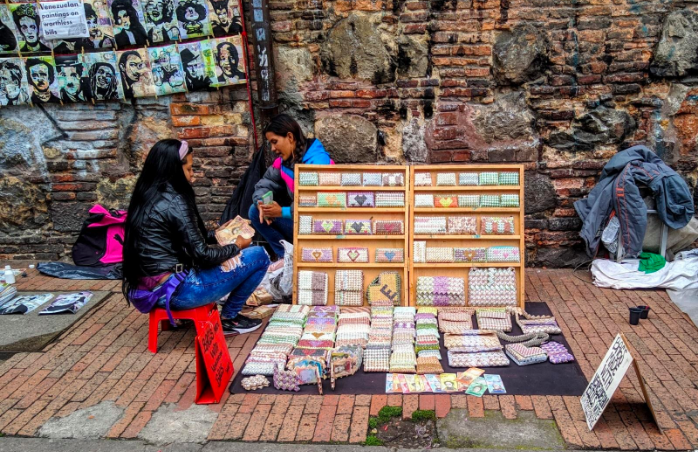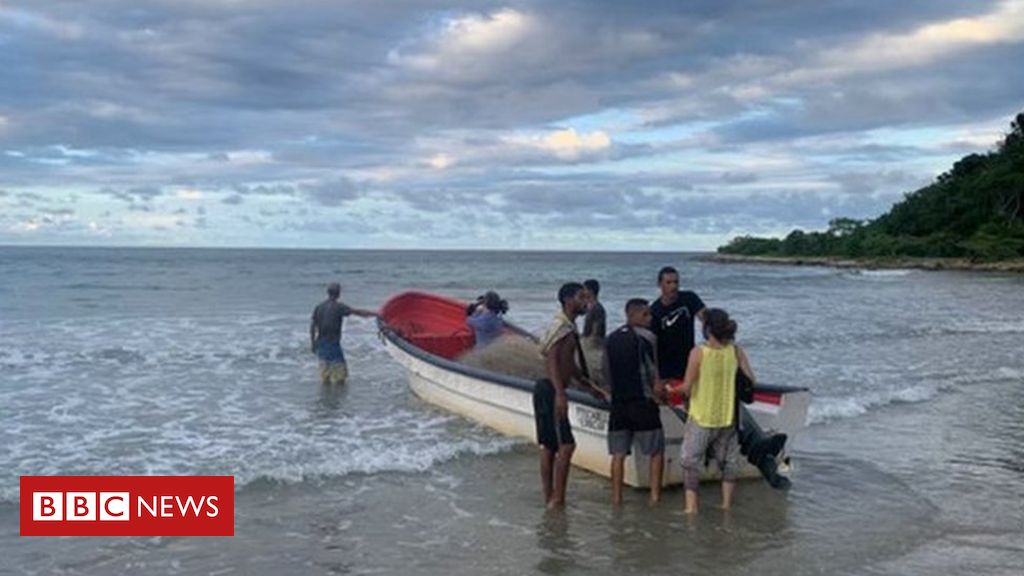On 8th February, Colombian President Ivan Duque announced that Colombia would grant temporary residence to over 950,000 undocumented Venezuelan migrants in the country. This announcement constitutes a significant humanitarian measure, with the potential to have a regional and international impact. What is the situation of Venezuelan migrants in Latin America and what impact might Duque’s decision have both domestically and in broader terms?
Migration and Refugee Crisis
The number of Venezuelans leaving Venezuela, either as migrants or refugees, for surrounding countries has reached urgent levels. As of December 2020, approximately 5.4 million Venezuelans have left the country since the beginning of Venezuela’s Bolivarian government in 1999, with the majority having left in the period since 2015. This number constitutes around 15% of the country’s population and places Venezuela’s crisis among the worst affecting the world today; in comparison, over 5.5 million people have fled Syria as a result of the conflict there.
Colombia has certainly felt the impact of Venezuela’s outflow, with statistics from the end of last year estimating almost 1.2 million Venezuelans on Colombian soil, about 22% of the total number of migrants/refugees. Most of these migrants/refugees are located in the capital, Bogotá, and the departments of Norte de Santander, Antioquia, Guajira and Atlántico; most of these latter departments lie along the border with Venezuela and Colombia’s northern Caribbean coast. Though Colombia hosts the greatest proportion of these Venezuelan refugees/migrants, it does not struggle alone. Peru, Chile, Ecuador and Brazil also bear the burden, with Peru in particular hosting the second highest number of refugees and migrants at over 1 million persons.
What Are the Details of Duque’s Decision?
President Duque’s announcement on 8th February constituted the start of a Temporary Statute of Protection for Venezuelan Migrants (Estatuto Temporal de Protección para Migrantes Venezolanos), opening the way for almost 1 million Venezuelan migrants to receive permission to remain in Colombia for a 10 year period.
Given the number of migrants the government must deal with, the policy will be carried out in two phases. In the first phase, which is ongoing at the time of writing, Venezuelans in Colombia are asked to register themselves on the country’s Administrative Registry of Venezuelan Migrants (RAMV in Spanish) so that the government can get a more complete picture of the status and number of migrants in order to develop appropriate policies. In the second phase, eligible migrants will receive new Temporary Protection Permits (Permiso por Protección Temporal or PPT) to formalise their protected status. Ultimately, those who receive the permit will be able to legally seek employment and take further steps if desired to obtain a Visa or more permanent residence.
What Effects Will The Decision Have?
The Colombian government’s decision is highly likely to have a positive humanitarian impact by reducing the need for Venezuelan migrants/refugees to risk returning to their home country as otherwise might occur if they did not have legal permission to work and reside in Colombia.
Besides the risks posed by armed criminal groups and natural hazards on the informal routes many Venezuelans used to enter Colombia, Venezuela’s Maduro regime has come under fire for its treatment of returnees. Specifically, criticism has been levied at the conditions in quarantine centres which returnees are required to stay in if they test negative for COVID-19 upon entering Venezuela, with accusations of overcrowding and a lack of access to clean water and lavatories. Returnees have also reported harassment by personnel managing the quarantine facilities and threats in cases where returnees protested against conditions in the centres. Given these risks, Colombia’s decision is a remarkable humanitarian measure.
The decision is also likely to benefit Colombia’s anti-narcotics efforts. Particularly for undocumented migrants in departments along the border with Venezuela like Norte de Santander, informal work as labourers on illegal coca plantations provides an opportunity to make a living. By receiving protected status and the right to seek legal employment, Colombia’s decision is likely to reduce the need for Venezuelan migrants and refugees to turn towards illicit work and crime in order to survive.
However, this positive effect may be dampened by the fact that some legal work opportunities may not be more appealing to Venezuelan migrants than the coca plantations, at least for unskilled migrants. Venezuelans working in coca plantations in Norte de Santander have reported daily earnings of between $11-14 and free food and board. Compared to legal labour on palm plantations, which allegedly do not offer an equivalent rate of pay or such benefits, the coca plantations may remain attractive to some Venezuelan migrants despite Duque’s announcement.
Colombia’s momentous decision is also likely to serve to raise awareness of the gravity of the Venezuelan migration/refugee crisis among the international community as a result of the decision’s international publicity. Greater international engagement with and awareness of this crisis is likely to be necessary given the desperate need for funding to deal with it. Though the United Nations Office for the Coordination of Humanitarian Affairs (UNOCHA) published a $1.4 billion appeal last year for a response plan to the crisis, at the time of writing this appeal has received less than 50% of the necessary funding.
Similarly, the hope exists that Colombia’s decision may motivate other countries in the region like Peru or Brazil to take similar steps to improve the status and conditions of Venezuelan migrants and refugees on their territory.
Though at the moment no other country has followed suit, it is probable that if Duque’s announcement proves successful in enhancing these migrants’ engagement with the Colombian economy and curbs their involvement in illicit activity, other countries affected by the crisis may implement similar measures or at the very least step up their engagement in the coordination of a regional response to the crisis.
Though Colombia’s process of improving the longer-term prospects of Venezuelan migrants and refugees within its borders has only just begun, the potential humanitarian benefits and possibility to serve as a role model for handling such crises may have a transformative effect in the region.
About Author
Samuel Arnold-Parra
Samuel graduated from LSE in 2020 with a degree in International Relations and History. Since graduating, he has been building up experience in research and analysis. Currently, he is conducting voluntary research on Japanese national and sub-national responses to COVID-19. He is eager to use his skills in Spanish and Japanese to contribute valuable insights focusing on Japan and Latin America.
Source: Global Risk Insights





